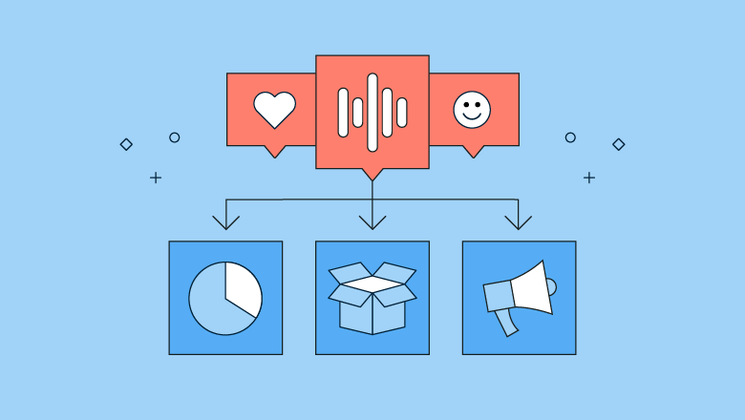In today’s digital age, where information spreads like wildfire across social media platforms, organizations need to be vigilant and proactive when it comes to crisis management. Social media listening has emerged as a powerful tool to monitor and address crises promptly, allowing businesses to protect their reputation and maintain customer trust. In this article, we will delve into the concept of social media listening for crisis management and explore its significance in modern business strategies.
Social Media Listening for Crisis Management: Proactive Strategies to Safeguard Your Brand’s Reputation

The Digital Landscape and Crisis Vulnerability
In today’s interconnected world, news, opinions, and rumors can spread globally within seconds, impacting a company’s reputation instantaneously. Traditional crisis management strategies are often insufficient in dealing with the speed and scale of social media. This necessitates the adoption of proactive measures like social media listening.
What is Social Media Listening?
Social media listening involves monitoring digital conversations across various platforms to gain insights into public sentiment, brand mentions, and emerging trends. It’s not just about tracking mentions but understanding the context and emotions behind them.
The Role of Social Media Listening in Crisis Management
Social media listening provides early detection of potential crises, allowing companies to address issues before they escalate. By identifying negative sentiment, brands can take immediate action to mitigate reputational damage.
Benefits of Incorporating Social Media Listening into Crisis Strategies
- Real-time Monitoring: Organizations can track discussions in real-time, enabling them to respond swiftly.
- Data-Driven Insights: Valuable data collected through listening can guide decision-making during crises.
- Customer-Centric Approach: Brands can show empathy and build trust by acknowledging and addressing customer concerns promptly.
Steps to Effective Social Media Listening
- Set Clear Objectives: Define what you aim to achieve through social media listening.
- Choose the Right Tools: Select tools that suit your monitoring and analysis requirements.
- Identify Relevant Keywords: Determine keywords and hashtags relevant to your brand and industry.
- Monitor Multiple Platforms: Keep an eye on various social media platforms to capture a comprehensive view.
- Analyze and Interpret: Review data to extract meaningful insights and sentiment analysis.
Real-world Examples of Successful Crisis Mitigation through Social Media Listening
- United Airlines: Addressed a crisis by responding promptly to negative social media posts and implementing policy changes.
- Starbucks: Managed a racially sensitive incident by engaging in open dialogue with customers online.
Leveraging Data Analytics for Informed Decision-making
Social media listening tools offer analytics that helps businesses understand public perception, allowing them to make informed choices during crises.
Challenges
- Data Overload: Managing the vast amount of data generated can be overwhelming.
- Context Understanding: Distinguishing between sarcasm and genuine concerns can be challenging.
The Evolution of Crisis Communication in the Digital Era
Traditional press releases have given way to real-time engagement and transparency through social media platforms.
Best Practices for Implementing a Social Media Listening Strategy
- Cross-functional Collaboration: Involve PR, marketing, and customer service teams for a holistic approach.
- Continuous Learning: Adapt the strategy based on lessons learned from each crisis.
The Human Element: Empathy and Engagement in Crisis Response
Acknowledging concerns with empathy and actively engaging with customers humanizes the brand, enhancing crisis resolution.
Integrating Social Media Listening into Overall Business Operations
Beyond crisis management, insights gained from social media listening can inform product development and marketing strategies.
The Future of Crisis Management: Anticipating Challenges through Social Media Insights
Predictive analytics and AI can revolutionize crisis management by identifying potential issues before they escalate.
Conclusion
In an age where information travels at the speed of light, social media listening for crisis management is an indispensable tool for any organization. By proactively monitoring digital conversations, understanding customer sentiment, and responding with empathy, companies can navigate crises effectively and emerge stronger than before.
Want to learn more about how social media listening can benefit your business? Request a demo from AIM Technologies to see firsthand how our advanced tools can help you stay ahead of potential crises and manage your brand’s reputation effectively.
FAQs
Can social media listening eliminate the risk of crises?
- While it can significantly mitigate risks, no strategy can guarantee the complete elimination of crises.
What types of tools are used for social media listening?
- Tools like Brandwatch, Hootsuite, and AIM Insights are commonly used for social media listening.
How can social media listening benefit brand perception even in non-crisis times?
- Understanding customer opinions helps refine marketing strategies and enhance the overall brand image.
Is social media listening only suitable for large corporations?
- No, businesses of all sizes can benefit from social media listening to manage their reputation effectively.
Are there ethical considerations in social media listening?
- Yes, companies must balance data collection with user privacy and ethical guidelines.




